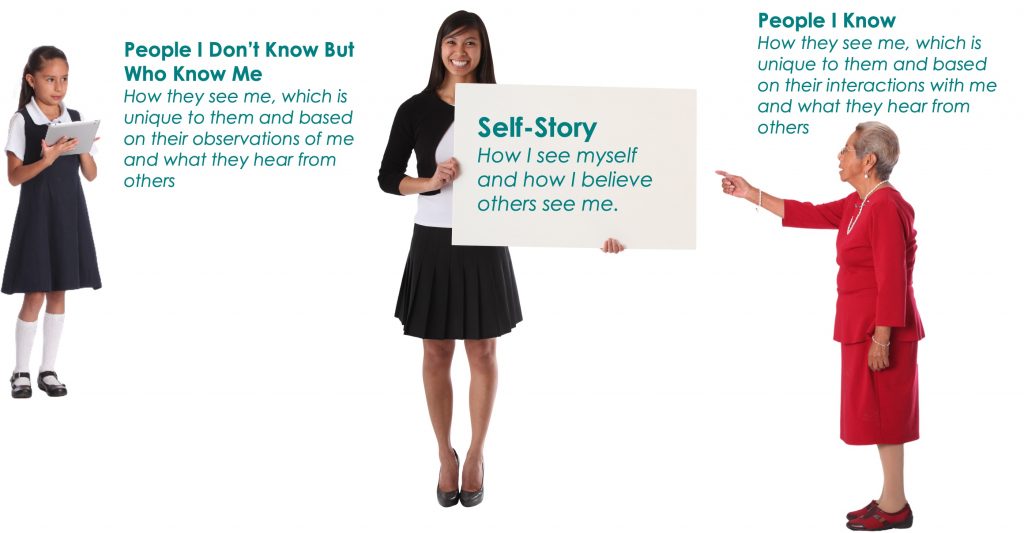
We each generate our ‘self-story’, which is our self-identity or how we see ourselves.
Our self-story emanates from our communities’ meta-narratives. When we are born, we come into an existing network of relationships and conversations – usually this is a family who initiate our self-story by giving us a name. Family members have stories about being part of the family. As we interact with those around us, we begin to learn those stories, which rapidly become our stories of how things should be. At some point in our childhood, we recognise ourselves as an individual. We start the process of identifying we are different from those around us and so we begin to generate our self-story. At some point, we move outside our familial stories and are exposed to other meta-narratives at school, digital mediums such as television, our friends and so on. These all provide different stories about how the world should be and how we should be. Later in life this will extend to our work place and other communities, where we will encounter new meta-narratives to be incorporated into our world view, further feeding our self-story.
So life goes. We move in and out of different meta-narratives. Along the way, our self-story is challenged by those meta-narratives; more often than not transparently. Hence our self-story is not generated in isolation, rather it evolves in response to the many other stories we encounter in life. Our concept of self only makes sense in the context of community and is in large part the product of the communities in which we live.
We are not simply at the mercy of the meta-narratives we encounter as our self-story is also formed by our personal experience of the world. We are constantly making sense of our inner experience – thoughts, feelings and sensations – and they play a major part in defining our sense of self. With distinctions in domains such as language, emotion and body, we can better make sense of self-story and even learn we have the capacity to be recognise the origins of our sense of self and also become a more intentional author of that story.
We not only generate stories about ourselves, we also transparently do this about everyone we encounter. We build their ‘identity’ to us based on what we garner about them from others and our experience of them. As with all stories, another’s identity is created in the context of our own worldview. The implication is that we have a unique identity with everyone who knows or knows of us. It is easy to think we know a person, but really we only have our story of them. With this in mind, we do not engage directly with others but rather through the stories we have about them. Those stories generate expectations of how others will act in given situations forming part of our predictions about life. When someone acts in a way not consistent with our story of them then we find ourselves in breakdown (prediction error) and either ignore the inconsistency or refine our story of them.
Even though we have a unique identity to each person who encounters us, bigger shared yet more general narratives develop about us that can be seen as our ‘reputation’. Many people we meet in life will have a story about us based on our reputation before we actually encounter them.
Ultimately, we find ourselves in dynamic flux of self-story, identity and reputation throughout our lives and each have an impact on what is possible for us.
